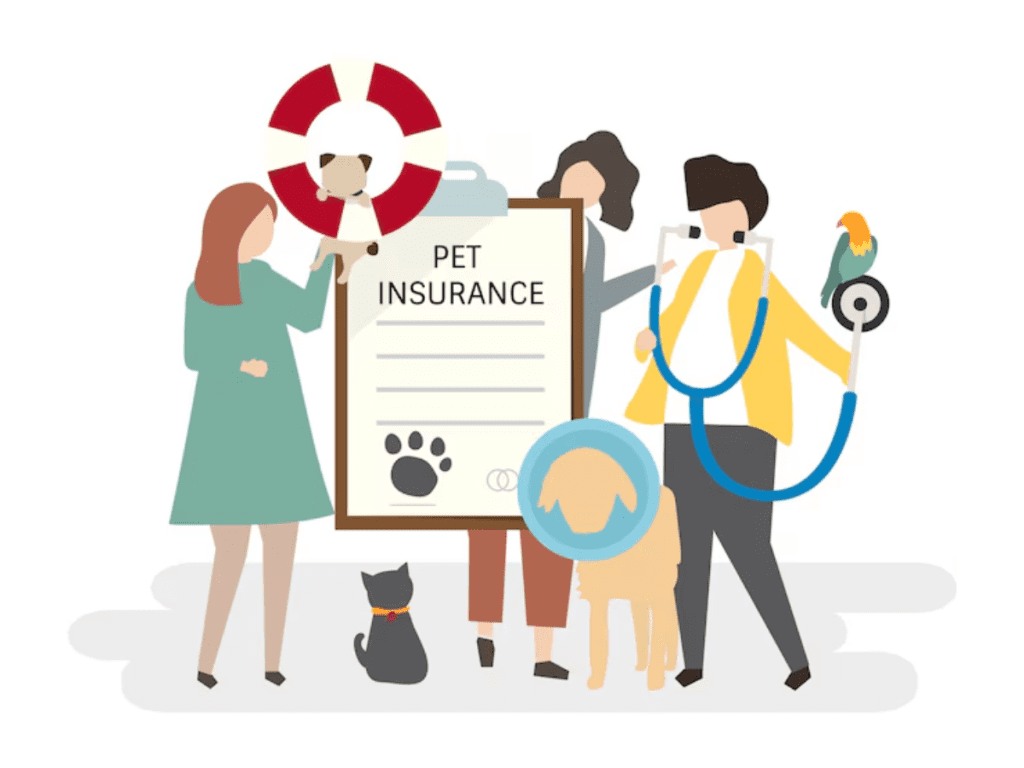Introduction
In the modern world pet healthcare costs have been consistently going up as a result of improved veterinary medicine wider availability of specialty treatments and rising demand for top-notch pet care Pet owners also tend to regard their pets as members of their family which encourages them to seek advanced treatments in order to extend and enhance the life of their pets However such medical interventions come with high price tags Emergency visits to the veterinarian alone can cost from a few hundred to a few thousand dollars depending on how serious the condition is the required diagnostics and the duration of the hospital stay Such expenses can rapidly drain unprepared pet owners’ finances and might lead to making hard choices or taking long-term loans To circumvent this, numerous pet owners are resorting to pet insurance as a reasonable solution to pay for these surprise expenses without putting their financial stability at risk
Understanding the Fundamentals of Pet Insurance Coverage
Pet insurance is meant to offset the financial risks that come with unplanned veterinary visits It functions by paying back a share of your vet bill after you have paid a monthly or yearly premium Depending on the insurance company and the policy chosen coverage usually covers accidents illness emergency procedures and sometimes hereditary and congenital issues Some policies also provide optional wellness plans that include preventive services like shots and checkups While these are not necessarily emergency related they aid in long term health and can be a factor in decreasing emergency visits When you buy a policy you will be liable for a deductible that needs to be paid before the insurance takes over as well as a co payment which is the amount of the bill you pay after the deductible Familiarity with these pieces is important for understanding what to anticipate in a veterinary emergency as well as preparing your money ahead of time
How Pet Insurance Can Prevent Financial Crisis in Emergencies
Pet emergencies are unexpected and emotionally stressful Whether your cat is hit by a vehicle your rabbit develops a respiratory infection or your dog develops a urinary blockage the emergency vet bill can be financially devastating Without financial protection many owners might find themselves reaching for credit cards loans or even crowdfunding to cover life-saving treatment Pet insurance avoids this emergency by paying for most of the emergency bill so that you will not have to cut back on your pet’s care because of finances The peace of mind of having financial protection lets you make decisions based on what is best for your pet rather than what you can pay for at the moment
Selecting a Policy That Suits Your Pet’s Needs
Choosing the proper pet insurance policy involves thought and deliberation about your pets special needs breed age and likelihood of health complications Various breeds are more susceptible to certain health issues and the policy you select should provide coverage that is suitable to those risks Large dog breeds can be at a higher risk for hip dysplasia or heart disease, and certain cat breeds may be more apt to suffer from kidney disease Consider also the age of your pet because older animals may need more medical attention and some companies place limits on enrolling older pets Compare various policies by looking at their monthly premiums deductible levels annual or per occurrence caps and percentage reimbursement Do not forget to ensure the plan you choose covers emergencies along with any long-term or chronic illness that may develop
Examining Typical Exclusions and Policy Restrictions
In order to prevent shock during an emergency you should be aware of what your insurance does not cover The majority of pet insurance policies will not cover conditions such as pre existing conditions, that is anything your pet became ill or was injured from before the policy is activated, therefore it will not be paid for Other usual exclusions are cosmetic surgery behavioral adjustment elective surgery and in some plans dental work except in relation to an accident As well, understanding waiting periods is essential which is the time lag between signing up for the policy and when insurance starts Claims involving events during the waiting period will be denied Paying close attention to the fine print in the policy will see you make a knowledgeable choice and ensure that you are fully ready when an emergency arises
Emergency Filing of a Claim
During the chaos of a vet emergency the last thing you need is uncertainty about using your insurance If you take some time to become familiar with the claims process ahead of time it can save time and stress Many insurers ask that you pay the bill upfront then submit a claim for reimbursement In order to submit a claim you will need to have an itemized invoice from your vet and a filled-out claims form that can often be done online or through a phone app The amount of time taken varies by carrier but usually a few days to a few weeks It takes several carriers longer While some carriers do have direct pay options where they pay the vet directly and charge you less you will always pay something out of pocket Keep your policy number and contact information in an easy location so that in an emergency situation you can take quick action
Building a Pet Emergency Fund as a Complement
Though pet insurance is an effective weapon it is also prudent to keep a small emergency fund for your pets care alone This fund can be utilized to pay deductibles co payments or services not included in your policy Keeping even a couple of hundred dollars aside can be a lifesaver in the initial moments of an emergency when you might be asked to pay out of pocket before reimbursement kicks in Saving a predetermined amount of money every month into a high-yield savings account can over time create a buffer that provides another level of financial security and augments your insurance plan
Comprehending the Effect of Deductibles and Reimbursement Rates
Every pet insurance policy has its own deductible and reimbursement structure A deductible is the dollar amount that you pay before the insurer starts to reimburse you This can be an annual deductible that is reset each year or a per condition deductible that is paid separately for each disease or injury After payment of the deductible the insurer pays a percentage of the balance usually ranging from seventy to ninety percent For instance if your policy includes a two hundred dollar deductible and an eighty percent reimbursement level and you have a one thousand dollar vet bill you will pay the initial two hundred dollars and then receive eighty percent of the remaining eight hundred dollars which is six hundred and forty dollars Knowing these figures up front allows you to budget properly and lessens stress at the time of crisis
Avoiding Coverage Gaps by Enrolling on Time
Of most relevance in obtaining good value for your pet insurance is early sign up Many of us only turn to insurance once the pet we’ve acquired turns sick or suffers injury by that stage however, it usually happens to be too late to acquire insurance cover for such an issue The majority of insurance covers fail to address conditions prior to commencing the coverage and waiting durations place your animal in harm’s way within those first weeks in protection What works best in seeking out insurance, though, is at a healthy age for the animal When so, the likelihood that a larger majority of prospective sicknesses can be catered for, including yourself being a smaller payer subsequently The earliest commencement further helps establish that longer standing relation with an insurance firm plus that stronger comprehensive experience about which provisions exist underneath that insurance to leverage when necessity presents itself
Using Wellness Coverage to Avoid Emergencies
Though emergency cases can never be prevented entirely preventive care works well in keeping severe health issues to a minimum Most insurance companies provide wellness plans as add-ons to their policies These include routine exams vaccinations flea and tick protection and dental care Regular preventive care is able to identify health concerns early on before they become emergencies For example routine blood testing may be able to find kidney disease in the earliest stages when it can be treated with less-invasive and cheaper procedures Selecting a plan that has wellness coverage ensures your pet receives full care and minimizes the chance of unexpected medical emergencies
Real-World Examples that Illustrate Insurance Value
Take the example of a Labrador retriever that swallowed a toy leading to an intestinal obstruction requiring emergency surgery The overall cost of the surgery post operative treatment and medication was nearly five thousand dollars Due to a strong insurance policy the owner was reimbursed almost four thousand dollars after paying a small deductible and co pay enabling them to go ahead with treatment without any financial hesitation In another instance an elderly cat diagnosed with diabetes required regular insulin injections monitoring and emergency hospitalization during a crisis The total cost over six months was over three thousand dollars and insurance facilitated payment of a large portion enabling the owner to keep the pet healthy without financial stress These instances highlight the utility of pet insurance as a financial protection against medical emergencies
Peace of Mind and Emotional Relief for Pet Owners
Aside from the monetary benefits pet insurance has emotional advantages that are just as important In a crisis situation emotions are running high and with insurance the additional burden of worrying about how to cover the cost of treatment is eliminated You can rest assured that your policy will take care of most of the expense so you can concentrate on soothing your pet making the best medical choices and aiding their recuperation The absence of concern due to financial readiness enables you to be present and emotionally available in a time of crisis This emotional support can deepen the relationship between you and your pet and make the recuperation process easier for both of you
Pet Insurance as a Long Term Investment
While monthly premiums may appear to be an extra expense, pet insurance needs to be considered as an investment in the long term for your pets’ health and your own financial security During the life of a pet particularly in their old age the risk of needing medical care becomes greater Whether it is cancer diabetes arthritis or heart disease being insured gives you the assurance that you are never surprised by unexpected costs Regular coverage over the years gives you a cushion that covers you the most when you need it the most avoiding both medical and financial emergencies

